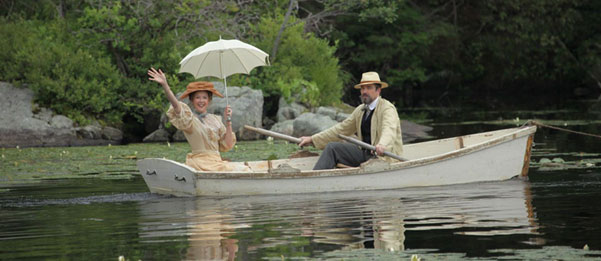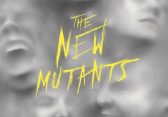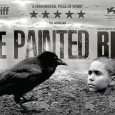7th September 2018 (UK)
In the early 20th century, an aging actress and her lover visit the estate of her elderly brother.
Michael Mayer
Elisabeth Moss, Saoirse Ronan, Michael Zegen, Annette Bening, Brian Dennehy
98 mins
Unless you’ve been previously initiated through the pages of a book or a production on the stage, period dramas can often blend together or fade away completely in the mind. At worst they can be utterly dull, and at best they’re simply safe cinema that’s easy on the eyes. But once in a blue moon the genre produces something genuinely engaging – and Michael Mayer’s The Seagull is definitely that.
With an all star ensemble cast, The Seagull (based on the play by Anton Chekhov) follows an ageing stage actress Irina (Annette Bening) who visits her ailing brother Sorin (Brian Dennehy) each summer at their country estate. The film focuses on the relationships between the various members of the household including the creatively depressed son of Irina, Konstantin (Billy Howle), the young and hopeful farm girl Nina (Saoirse Ronan) and the perpetually in mourning Masha (Elizabeth Moss).
The ensemble performance is really what makes The Seagull fly, and elevates it above the usual corset-and-top-hat offerings. The diverse cast are carefully developed to a point that the film becomes a breeze to watch, making it easy to identify everyone and remember their relationships with the rest of the group. The excellent screenplay by Stephen Karam lovingly creates a colourful collage of their lives, with complicated observations and mundane routine both captured within the confines of dialogue and actions: It helps sell the legitimacy of the material with ease. Although if you are expecting something melodramatic, you may find yourself bored with the lack of intense drama found within The Seagull.

Another great selling point of the film is how beautiful it looks. It’s a great testament that whilst the entire film is set in and around a single country estate, cinematographer Matthew J. Lloyd never lets the surroundings feel mundane. Precisely framed landscapes go hand in hand with intimate close ups of actors losing themselves within characters, and both day and night scenes have a wonderful summer feeling to them.
During the flow of scenes, I noticed on occasion that pieces of dialogue felt particularly stage-like, which very often happens when adapting a play to film. It creates some very on the nose moments that feel forced in creating drama or character development. Which brings me to my second point of disappointment: whilst the lack of seething drama is a positive in terms of acute observation, the film suffers from never raising deep emotions from the audience, or wrestling with any hard questions it’s characters may ask. A shame because, if it had done, this very easily could be a classic.
These complaints don’t take away anything too drastic to hinder the enjoyment of The Seagull, which is a refreshing, well adapted period drama much more concerned with the nuance’s of human behaviour than a sweeping pull at the heartstrings. With excellent performances all around, as well as beautiful visuals and an engaging score by Nico Muhly and Anton Sanko, it can safely be regarded as a successful adaptation.
Open your eyes and ears to The Seagull, and take flight on a gentle journey with pleasing views and pleasant sounds. It may not be overly exciting, but the attention to detail is sublime.
The Seagull will be released in select cinemas in the UK from 7th September. A full list of cinemas scheduled to be showing the film can be found at: http://www.thunderbirdreleasing.com/the-seagull/
Ensemble cast is incredibly strong
Beautiful to look at
Successful adaptation which does justice to source material
Glides at a leisurely pace, which may not suit those looking for melodrama
Its stage origins occasionally creep in through on-the-nose dialogue



























